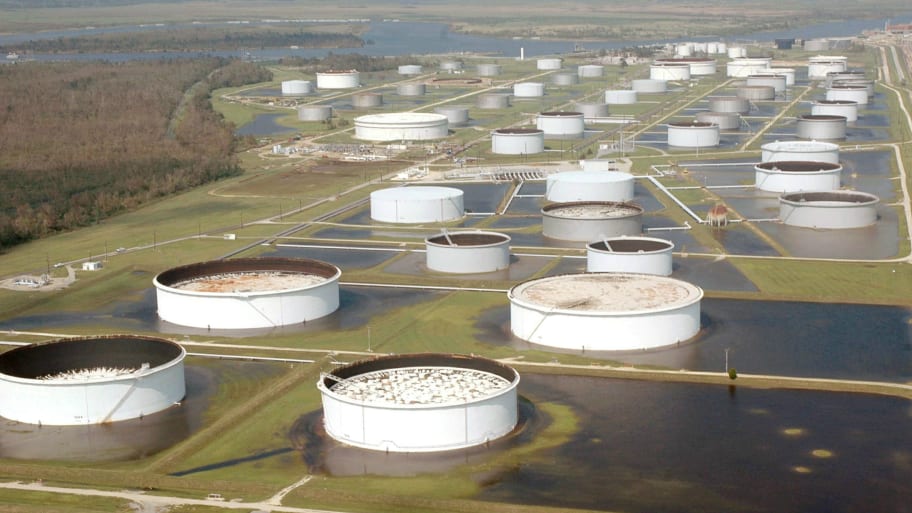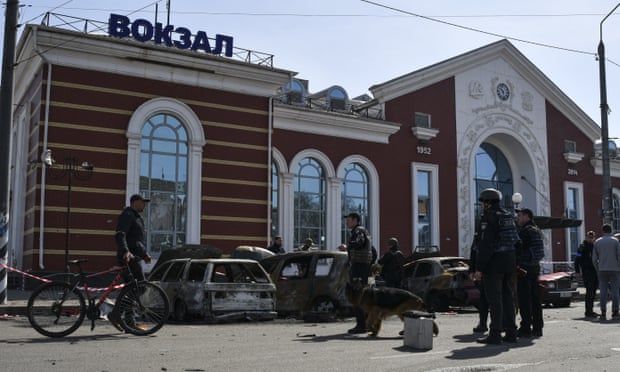
US Taps Deep into Oil Reserves. Will It Be Enough?
On March 31, Biden announced a decision to release a record amount of oil from the Strategic Petroleum Reserve. Specifically, the U.S. will tap 1 million barrels each day for 180 days, a number without precedent in the nearly 50 years of the SPR’s existence and across the entire world.
Oil Prices Decrease
With this decision, the U.S. will release up to one-third of the SPR. According to The New York Times, 1 million barrels of oil each day is equivalent to 5% of American demand and 1% of global demand.
In a statement on the White House’s website, Biden emphasized that supplementing supply is a measure meant to lower fuel costs at this time. Fuel prices in the U.S. have greatly increased in recent times; Biden described that as pain for American families.
The American leader brought up the impact of the COVID-19 pandemic as a reason for increasing fuel costs — specifically, reduced demand that led to reduced production, after which the economic recovery rapidly increased demand again to a point which supply could not meet. Biden named his Russian counterpart, President Vladimir Putin, as the second reason. He accused Russia — a major gas and oil exporter — of causing a supply shortage with its military operation in Ukraine, which brought about a series of reactions from other countries that pushed prices higher.
Right after Biden’s statement, oil prices immediately fell. On April 1, the reported price of oil on the New York Mercantile Exchange dropped to $98.92/barrel, while on the Intercontinental Exchange, Brent Crude fell to $103.56/barrel, according to Bloomberg.
Short-Lasting, Implicit Risks
Nevertheless, the market’s rapid reaction is still not enough to ensure the reduction in fuel costs will last. According to The Washington Post, theoretically, adding oil supply to the market will successfully reduce prices, but what has not been mentioned is balance. Each day the U.S. uses up to 20 million barrels of oil, and it is difficult to say whether adding 1 million barrels to supply will make a great difference. Not to mention that when prices drop a little, demand increases accordingly. “I don't want to say it's insignificant, but it's not the amount we need,” said Tom Seng, assistant professor of energy business at the Collins College of Business in the University of Tulsa, to USA Today.
Strategic Petroleum Reserve
In 1975, the U.S. established the SPR after the 1973 oil crisis, when oil producers in the Middle East embargoed the U.S. because of its support for Israel during the Yom Kippur War. The SPR was meant to be used in emergency situations that cause oil and gas shortages, like natural disasters or war. The oil is stored in underground salt domes in Texas and Louisiana. The U.S. has released oil from these reserves several times, most recently 50 million barrels in November 2021 and an additional 30 million barrels released in the beginning of last March. As of March 25, the SPR has 568 million barrels remaining. After the decision to release 180 million barrels in the coming six months, the U.S. will have 388 million barrels in reserve, the lowest level since 1984.
Experts in the energy sphere also believe that the impact of this measure will only be temporary. “While today’s release may provide some short-term relief, it is far from a long-term solution to the economic pain Americans are feeling at the pump,” said Mike Sommers, president of the American Petroleum Institute (an organization which represents oil and gas companies in the U.S.). American energy transaction specialist John L. Graves assesses that this release of oil reserves will not do anything to help with long-term concerns about fuel costs or even U.S. energy security. Fuel producers and oil product manufacturers have also made similar judgements that this is only a temporary solution.
Moreover, the daily supply shortage from Russia is three times larger than the amount of oil the U.S. will release from reserves each day. Bloomberg cited the assessment of senior market analyst Jeffrey Hally at the investment intermediary Oanda Asia Pacific Pte Ltd., headquartered in Singapore, who thinks Biden’s measure cannot compensate for the shortage of oil imports that sanctions against Russia have created.
Biden’s More Difficult Problem
Additionally, speaking long-term, releasing U.S. oil reserves means that the SPR will significantly decrease as ordinary demand increases in the summer. This could make oil prices increase. This is also the concern of Joe McMonigle, secretary general of the International Energy Forum. According to CNN, McMonigle believes the problem is that the SPR is not a bottomless barrel, so Biden’s measure is unsustainable.
According to expert Jay Hakes, author of two books about the oil reserves, the U.S. government needs to encourage its people to use less oil and gas and also needs to have other nations release their strategic oil reserves to have any hope for a greater impact. Meanwhile, Mike Sommers believes that Biden needs to encourage domestic oil and gas production by reducing regulation. U.S. fuel producers and oil product manufacturers also raise another point: Stability and certainty are just what global oil markets crave. The most reliable way to improve those is to increase oil output and exploration from stable countries, including the U.S. Similarly, Republican Sen. John Barrasso, a member of the Committee on Energy and Natural Resources, said that what will really make a difference is producing more energy within the country.
Biden clearly understands the problem is bigger than the solution. In a statement on March 31, he pointed out that his energy plan has two stages; releasing oil from strategic reserves is only the first step to resolve the crisis at this time. The second goal Biden put forward was to put an end to the era of dependence and uncertainty and create a new foundation for long-term energy independence and the American way. He wants to apply pressure on domestic oil companies to increase oil exploration by calling on Congress to force companies to pay fees for federal oil well leases that have not been used for many years and that are on public land that has no production operations. Biden emphasized that this measure will make a real difference but will take months to achieve. He has also said he is coordinating with partners and allies across the world to have more oil supply enter the market.
The tricky part is that punishing oil and gas companies may not be effective. Analysts believe positive measures should receive more priority. According to The New York Times, many companies are currently hesitant about pouring too much money into exploration because they are concerned oil prices will then fall.

